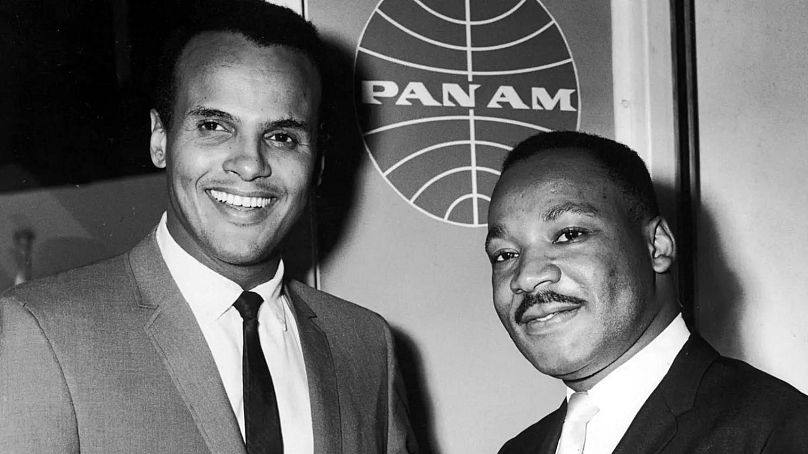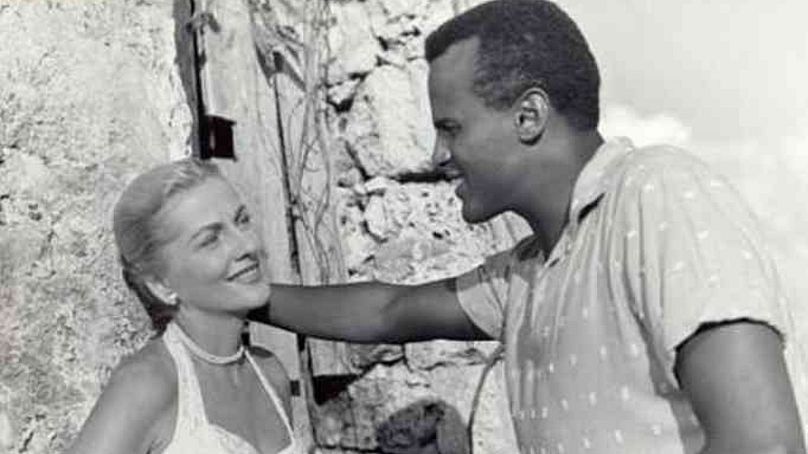Harry Belafonte, who stormed the pop charts and smashed racial barriers in the 1950s with his highly personal brand of folk music, and who went on to become a major force in the civil rights movement, died on Tuesday at his home on the Upper West Side of Manhattan. He was 96.
Harry Belafonte, the civil rights and entertainment giant known as the “King of Calypso” has died aged 96 of congestive heart failure.
The legendary American star began as a ground-breaking actor and singer and became an activist and humanitarian. Belafonte was one of the first Black performers to gain a wide following on film and to sell a million records as a singer with his 1956 album 'Calypso', which was credited as popularizing the Caribbean musical style.
Many know him for his signature hit 'Banana Boat Song (Day-O)', and its call of “Day-O! Daaaaay-O.” He recorded in many genres, including blues, folk, gospel, show tunes, and American standards. But he forged a greater legacy once he scaled back his performing career in the 1960s and lived out his hero Paul Robeson’s decree that artists are “gatekeepers of truth.”
He stands as the epitome of the celebrity activist, having been an advocate for humanitarian causes, such as the anti-apartheid movement and USA for Africa. Belafonte not only participated in protest marches and benefit concerts, but helped organize and raise support for them.
He worked closely with Rev. Martin Luther King Jr., often intervening on his behalf with both politicians and fellow entertainers and helping him financially.
He risked his life and livelihood and set high standards for younger Black celebrities, mentoring Usher, Common, Danny Glover and many others. He was a frequent critic of both Republicans and Democrats, and criticised Jay Z and Beyoncé in 2012 for failing to meet their “social responsibilities.”
“Give me Bruce Springsteen, and now you’re talking. I really think he is Black,” said Belafonte. Jay-Z responded: “You’re this civil rights activist and you just bigged up the white guy against me in the white media … that was just the wrong way to go about it.”
In Spike Lee’s 2018 film BlacKkKlansman, he was fittingly cast as an elder statesman schooling young activists about the country’s past.
Belafonte’s friend, civil rights leader Andrew Young, would note that Belafonte was the rare person to grow more radical with age. He was ever engaged and unyielding, willing to take on Southern segregationists, Northern liberals, the billionaire Koch brothers and the country’s first Black president, Barack Obama, who asked Belafonte to cut him “some slack.”
Belafonte responded: “What makes you think that’s not what I’ve been doing?”
Belafonte won a Tony Award in 1954 for his starring role in John Murray Anderson’s Almanac and five years later became the first Black performer to win an Emmy for the TV special Tonight with Harry Belafonte.
In 1954, he co-starred with Dorothy Dandridge in the Otto Preminger-directed musical Carmen Jones, a popular breakthrough for an all-Black cast. The 1957 movie Island in the Sun, starring James Mason, Joan Fontaine and Joan Collins, was banned in several Southern cities, where theatre owners were threatened by the Ku Klux Klan because of the film’s interracial romance between Belafonte and Fontaine.
Since 1987, he was a UNICEF Goodwill Ambassador and he received a Kennedy Center Honor in 1989, as well as the National Medal of Arts in 1994. Belafonte won three Grammy Awards, including a Grammy Lifetime Achievement Award in 2000, and was among the select group of artists to have received an EGOT - Emmy, Grammy, Oscar, and Tony for his work.
Belafonte died at his New York home, his wife Pamela by his side.













